Here's How to Navigate Your Sex Life in Quarantine, According to the Experts

We're about a year into this pandemic and quarantine, and we're all aware that our lives have changed pretty drastically. Many of us have been fortunate enough to be able to work from home but have had to adjust to video meetings and a new type of work/life balance. We've had to make adjustments in our home lives, too. And we've had to deal with so many stressors—concerns about finances, health, society, and politics, just to name a few.
Our relationships also have changed at this time, especially in the sex and intimacy department. Both those who are coupled up and those who are single have experienced a difference. Whether you're in a long-term partnership or just started dating, whether you have kids or not, and whether you live alone or with others… Everyone has probably felt a shift. We might not all have had the same experiences at this time, but the change is there.
"It's tempting to generalize, but sex and intimacy have changed in different ways for different people," explains Isharna Walsh, CEO and founder of sexual wellness app Coral. "Some people may be having more sex, although many are having less. I think one generalization that we can make, however, is that the pandemic is stressful for everyone, no matter your relationship or family status. People are worried about the virus. Many have financial concerns. The ongoing uptick in stress affects our interest in sex negatively. In short, these aren't sexy times. It takes that much more effort—worthwhile effort, considering what we know about sexual wellness and its importance to quality of life—to make sex a priority."

But while we are in quarantine with a lot of other stressors, concerns, and uncertainty, paying attention to your sexual wellness is still important. Britney Blair, PsyD, leading clinical psychologist and co-founder of sexual wellness app Lover, says that we spend a lot of time talking about nutrition, exercise, and sleep, but very few of us talk about sexual wellness, even though a vast majority of us are sexual beings. "Most Americans' sex education comes from porn, and no one is taught about how to experience more pleasure in bed or how to be a better lover," she says. "For most of us, sex is an important part of our self-esteem or confidence, and all of our data suggests it is crucial to the health of a long-term relationship."
During these tough times, sometimes, it can feel a bit "frivolous" to feel sexy or think about your sexual needs when there are other things to worry about. But you shouldn't feel guilty about it. "Sex is the act that you engage in, whereas sexuality often is who we are from birth till death. It's how we interact with others, is how we adorn ourselves," explains Donna Oriowo, LICSW, MEd, CST, owner and lead therapist of AnnodRight. "And I would say that, even in quarantine, sexuality is important because you still get to address your body for what it is that you're wanting to do or how it is that you're wanting to engage. Sometimes, you just want to feel sexy. Sometimes, you're feeling very into what you look like—you're feeling yourself. And there's nothing wrong with that and holding space for that energy and honoring that energy."

Paying attention to your sexual wellness right now doesn't mean you have to re-create your pre-pandemic sex life. How could you do that when so much of life has changed? A lot of it might involve looking at sex and intimacy a little bit differently while considering your needs.
Oriowo recommends looking at the pleasures that can be found in your relationship or singleness or pleasures that can be found with your children or your childlessness. Look at the pleasures you can get delivered to your house—the pleasures of cultivating your space.
You can get real with yourself about your own particular circumstances, too. "A big part of this may be acceptance—that this year may not be the peak of sexual enjoyment and pleasure, and that is okay!" says Briony Leo, PsyD, head coach and licensed psychologist at relationship coaching company Relish. "Many couples worry that they are not having enough sex, but really, if both people are satisfied with the amount, that is what matters. For single people, being able to accept that dating or finding a partner might be a lot harder right now can help, too, and it is okay to put that on hold and work on another part of their lives."
To get more guidance on how to navigate sex and intimacy at this time, I asked the experts for some tips for both couples and singles, so everyone's covered here. Take a look below for what they had to say.
For Couples

"We recently conducted a Relationship Health Report with 1736 respondents and found that couples are having 15% less sex than pre-COVID—but that there wasn't a difference between how much sex we're having and how much we want to be having!" Leo says. "We took this to mean that the impact of the past year—stress, poorer mental health, adjusting to being at home and in the company of your partner more than usual—has dampened our libidos and made sex less of a priority." Leo adds that people said they were more comfortable with telling their partners how they feel, which may mean greater emotional intimacy and vulnerability in couples.
But of course, one couple's experience during the pandemic is probably different than another couple's. Kate Balestrieri, PsyD, a licensed psychologist and certified sex therapist, says she's seen a whole spectrum of experiences and that a lot of it depends on the quality of the relationship before the pandemic started. "I've seen couples really flourish together and deepen their love and their commitment and their emotional and sexual intimacy," she says. "I have also seen couples who have had kind of the revelation that maybe they're not as good of a fit as they thought because either they deal with what's going on in the world differently or they approach stress differently. And all of those things can shape how they are or are not sexual together."
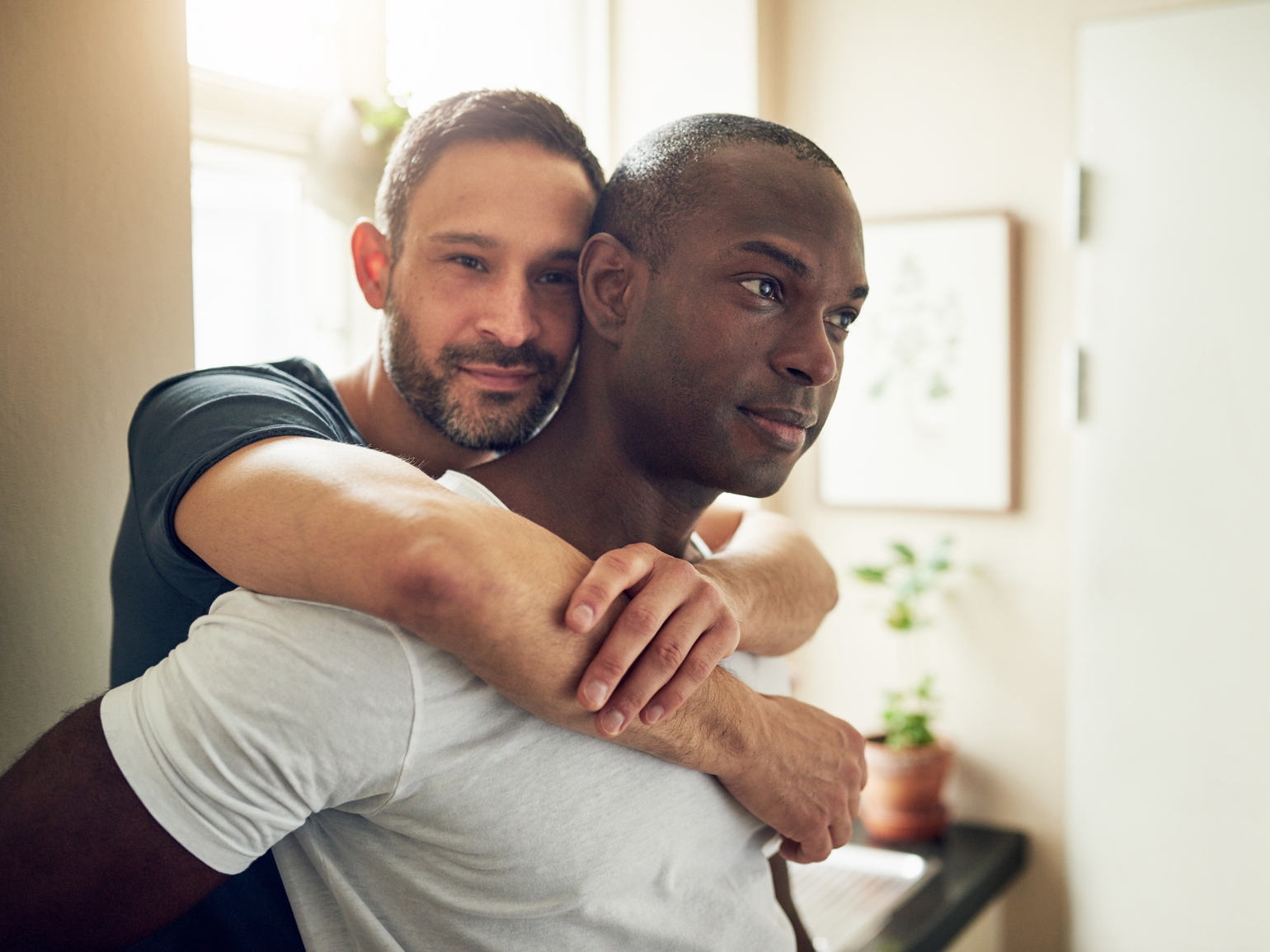
Couples have really had to adjust to a lot of different changes in everyday life. Leo says you're dealing with things like a discrepancy in libidos (which can happen outside of pandemic life), added stress, body image issues, and exhaustion, especially for families with children who have to balance homeschooling and working from home. "There is also the reality that 'absence makes the heart grow fonder,' and being cooped up with your significant other 24/7 may take away a lot of the romance," she adds.
There are some steps you can take to address those issues above and strengthen your relationship during this time. Take a look at some ideas.
1. Be Gentle With Yourself and Your Partner

"Putting pressure on yourself and your partner to have mind-blowing sex just because you're both home is counterproductive," Walsh says. "These are extreme times. It's okay for physical intimacy to look different. Maybe, for a while, intimacy looks like sensual massage or even nonsexual, affectionate touch. The most important thing is to stay connected and do what feels good."
2. Give Each Other Space

"Too much 'together time' can rob a couple of their erotic energy," Blair says. "In 'normal' times, we leave for work, separate social engagements, gym time, spa time, etc. With the pandemic, we are stuck together 24/7, and while this may, at first, sound romantic… the erotic needs space in order to thrive. Taking space when you are stuck inside four walls can be challenging, so get creative!" Blair recommends taking solo time in another part of your space if you have the room. If your space is limited, consider using headphones for your alone time.
Sometimes, one partner is comfortable with more closeness, while the other might enjoy more alone time, Blair says. It's important that you both recognize the differences so you can navigate your needs.
3. And Actually Create Some Space
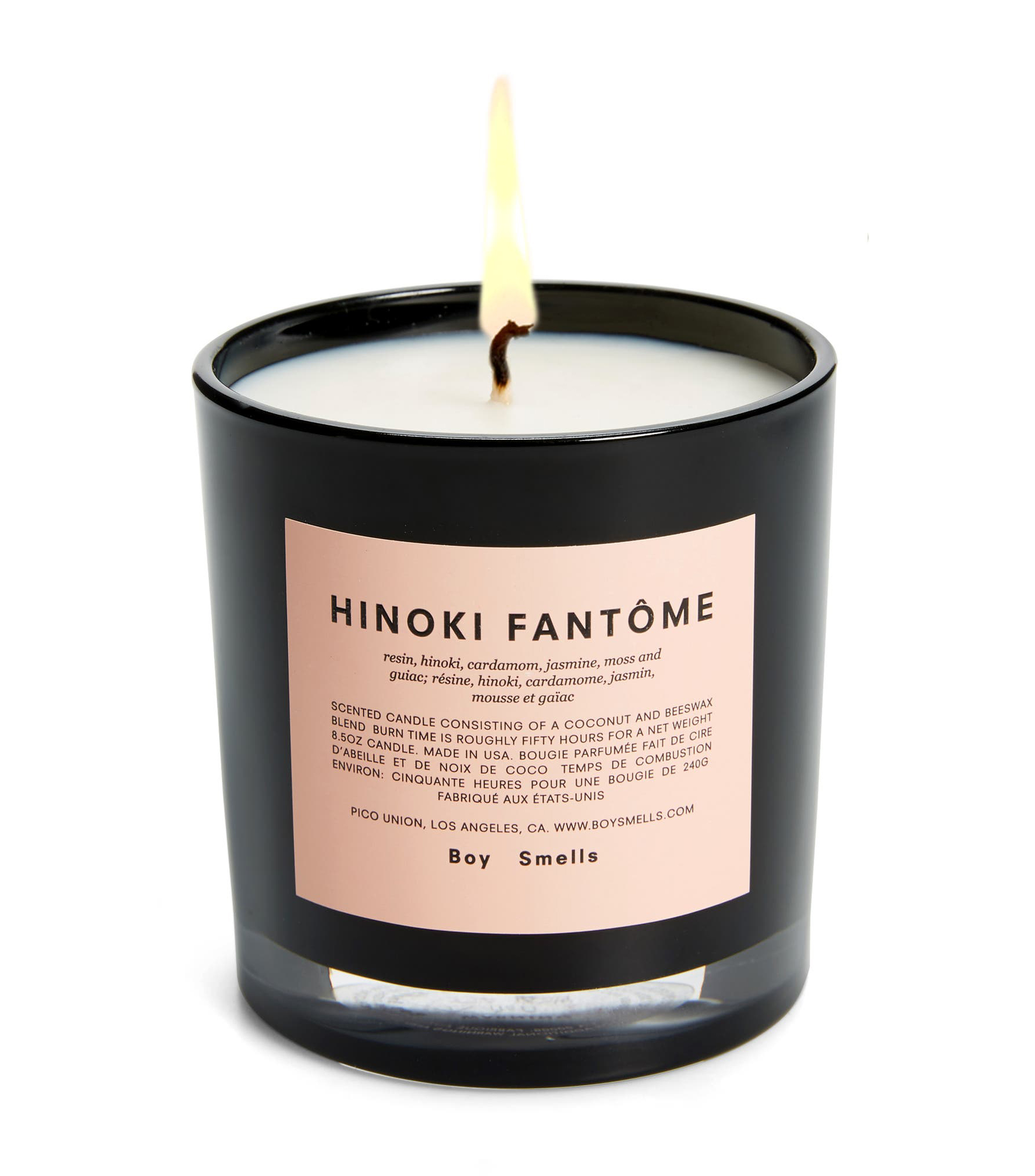
"I would also suggest carving out some space in your living environment for sexual connection," Blair says. "Consider making your bedroom a sensual sanctuary. Try to get rid of the pile of dirty clothes or clutter—neither of which are sexy. Maybe get some candles and have a sexy playlist at the ready. Make your bedroom a place of relaxation and sensuality. This will help both with your sex life and your sleep."
4. Schedule Some Quality Time
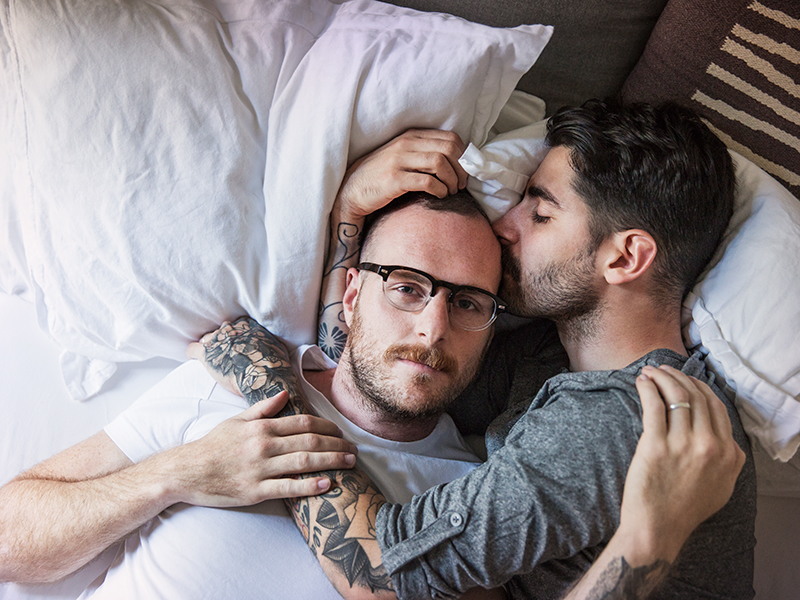
Walsh recommends cultivating some space for physical intimacy and quality time without the pressure for sex, which can look like dedicated cuddle time, a massage, or sharing a meal without looking at your screens.
5. Communicate
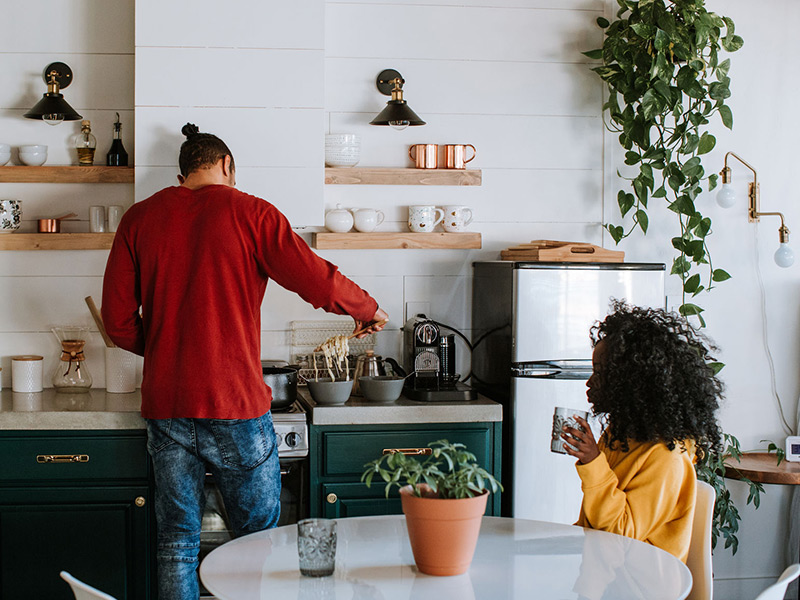
Communication is key in relationships whether you're in a pandemic or not. "For those couples who are doing well and report that they are happier now than pre-COVID, we also see a willingness to communicate and do things differently," Leo says. "It seems like the couples who are more flexible and accepting of the situation and have the ability to adapt and get help if needed came through this the best."
6. Don't Wait Until You Want It

It's very likely that your sexual desire will wane over time if you're in a long-term monogamous relationship. Blair says that it doesn't mean that you or your partner aren't attracted to one another anymore. It just means that the novelty is gone, and novelty is one of the key factors that drive up sexual desire. "Not to worry, what generally happens is that desire follows arousal," she says. "So feel free to prioritize sexual contact and see if touching and making out doesn't light your fire. I recommend prioritizing some sexual contact with your partner every 72 hours. This does not have to involve intercourse—let the extra time you have with quarantine facilitate curiosity and experimentation. Consider trying a new sex toy, giving each other a sensual massage, taking a sexy shower together, etc."
7. Bring in Novelty
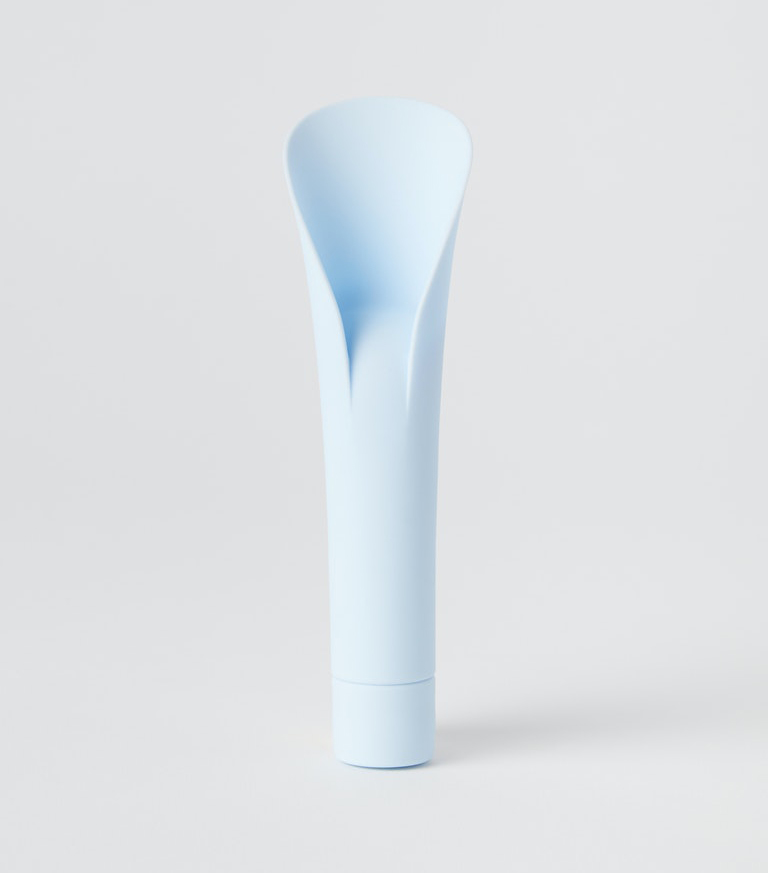
There are some strategies for bringing back that novelty, too. Walsh says it might involve introducing new sex toys and positions, but it can also mean approaching sexuality differently. "For example, cultivating empathy or communication skills can shift the entire dynamic of your physical connection," she says. "The date nights are a great way to practice trying something new, but you can also try one of hundreds of intimacy exercises at any time in the Coral app."
8. Learn About Your Stressors
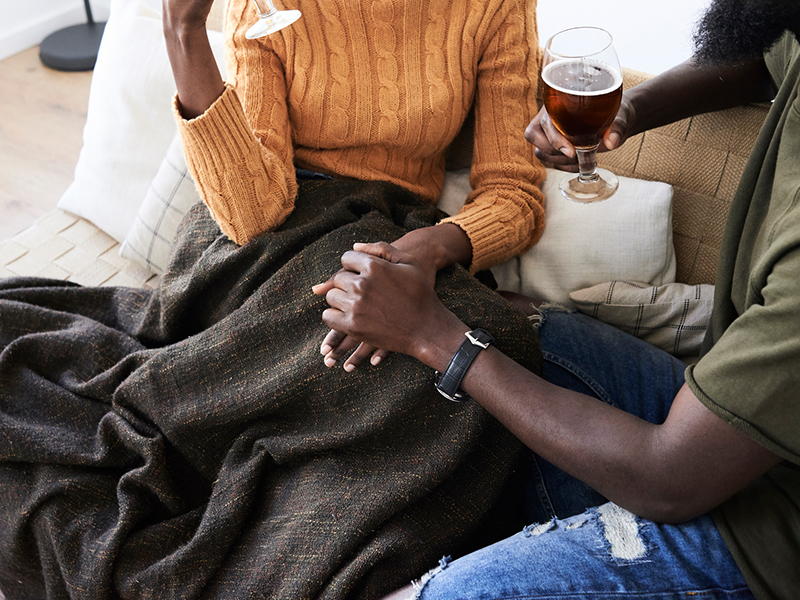
"We love to talk about the work of Emily Nagoski, who is a sex educator—she talks a lot about how stress impacts us differently," Leo says. "For some people, it totally shuts down their desire systems, whereas for others it ramps them up. So a couple needs to understand each of their responses to stress. Understanding what triggers your desire and arousal is great, and there are some surefire ways of overriding the stress response that can shut off arousal."
9. Take Care of Yourself

Some people might be in a rut, which can kill desire. "Do something to get in your body again and to reconnect with that sense of intentional sensory exploration," Balestrieri suggests. "And that can really wake people up again sexually and create more interest in showing up with their partner." That might mean grooming yourself the way you used to before the pandemic, going for a walk around the block, or doing some yoga.
10. Look Up Some Resources
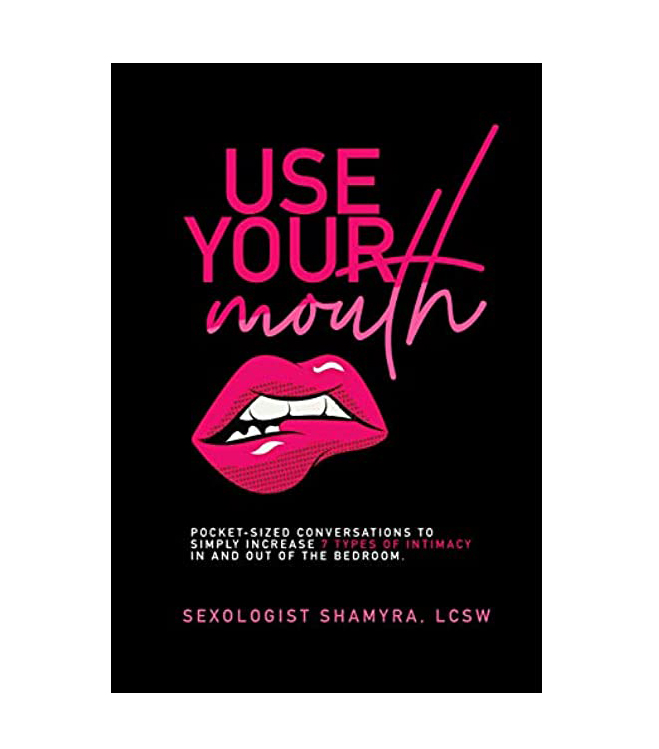
Reading and journaling can help you reconnect with your sexuality, whether you're in a relationship or single. Oriowo recommends Shamyra Howard's Use Your Mouth cards and Use Your Mouth book, which both help to increase intimacy in and outside of the bedroom. She also recommends a downloadable workbook, Solo Sex by Afrosexology, which can help you get back in touch with your individual body and with engaging yourself.
"I think that this is a great time to really utilize Instagram and follow people because you learn so much through who you follow," Oriowo adds. "Use the resources that we have at hand to really engage in our sex and sexuality in a way that works for us."
For Singles
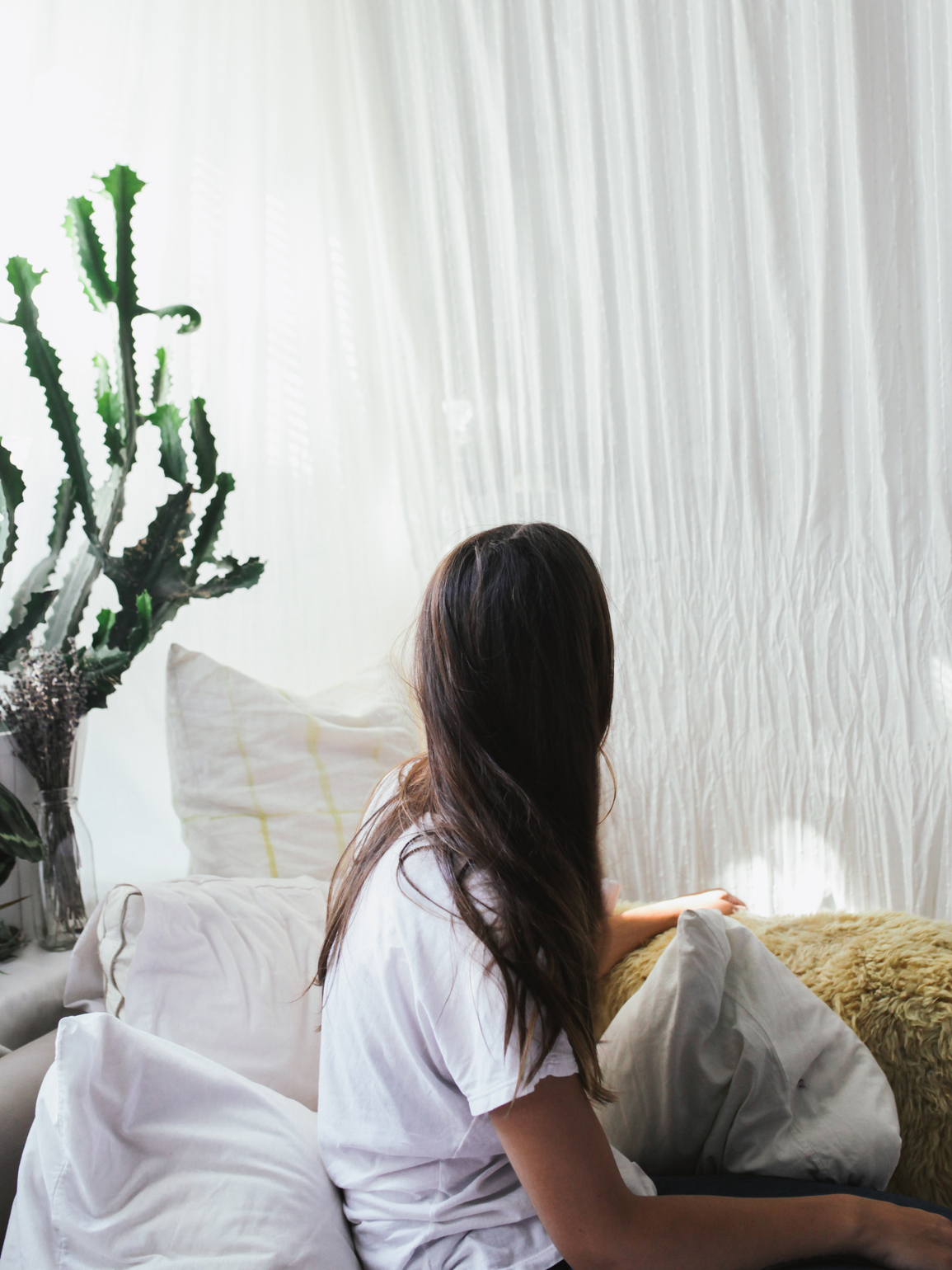
As a single person myself during this pandemic, I think I can speak for pretty much every unattached person and say that the struggle is real. Dating in "normal" times was hard enough, but COVID-19 is a whole other level of crazy. "Being single now is more difficult than ever," Blair says. "Not only are we all locked down and isolated without even the company of friends, but dating has become much more complicated! I think a lot of single folks are feeling alone, hopeless, bored, and horny! Not only are there concerns about STIs, but now, we have to worry about contracting or spreading COVID-19."
Some singles have been attempting to date in person, while others have preferred virtual dates over FaceTime or Zoom. And some people aren't even trying to get in the game at the moment. While everyone's situation might be different, there's no denying that the loneliness and isolation can feel very real at this time. Even if you weren't the most touchy-feely person at the start of this, you might be craving some touch and affection at this moment (and not just the sexual kind).
But there are a couple of things you can do to make things a little bit better for yourself right now—the experts shared below.
1. Think About What You Want
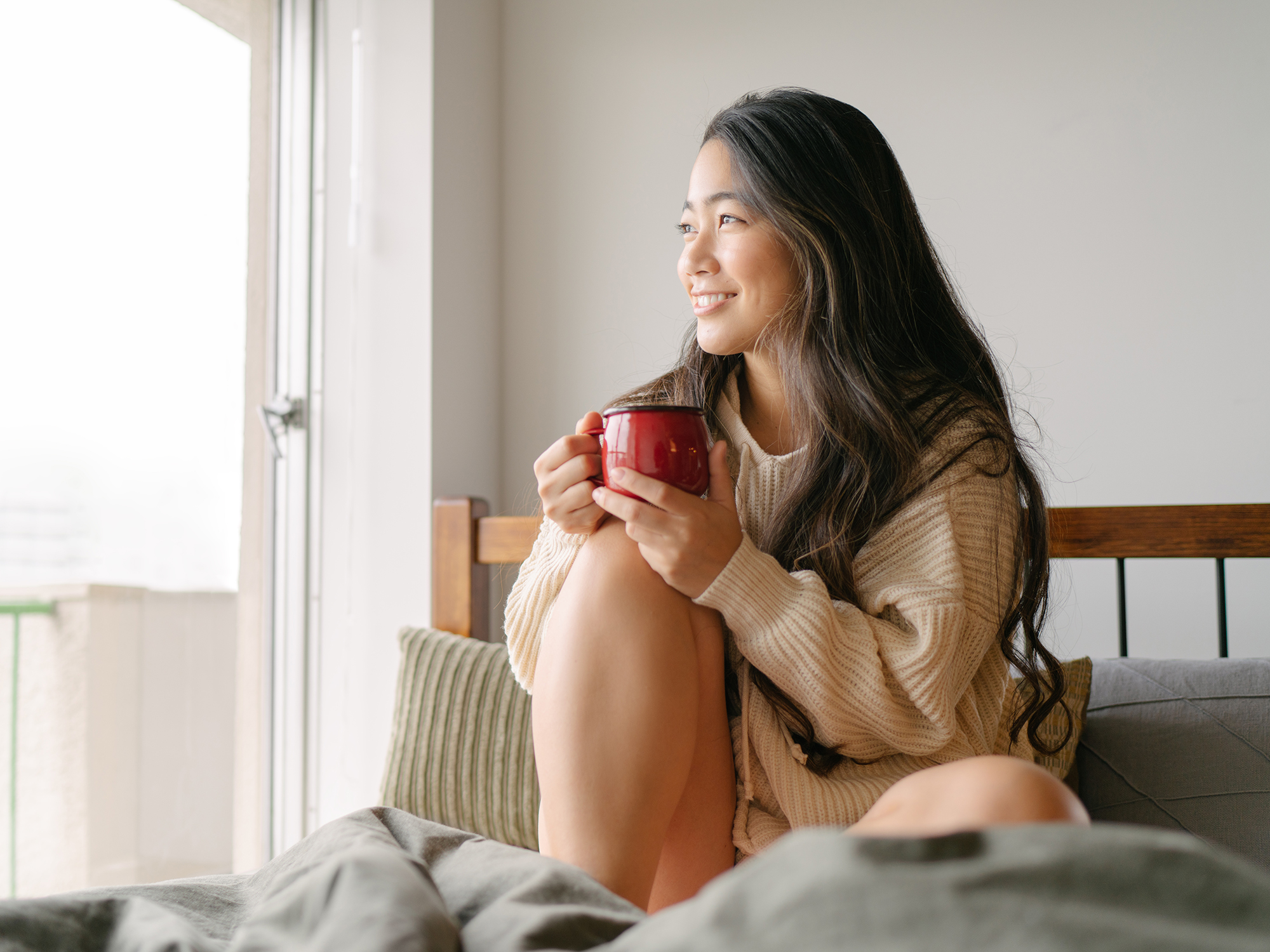
This can be a time of personal growth for you. "For some people, they've been really appreciative of the time and space away from social dating and having to be out in the world," Balestrieri says. "It's given them more pause to stop and be more intentional about what kind of partner they're looking for. The pandemic has given them maybe a different set of priorities to think about in terms of financial security, professional security, a sense of meaning in the world, connection, and family. So some people are really feeling like this time has been a gift because they've been able to step back out of what can be a very automatic and sometimes unconscious way of just being social and being out and about and going on dates."
2. Take Advantage of Communication

A lot of people are having more frank conversations with potential partners right now—they've had to ask about their exposure to COVID-19 and what kinds of social-distancing precautions they're taking. Oriowo says she's found that people have been even more communicative at this time, which has opened the doorway for more conversation surrounding sexual health.
And if you do have to have a serious conversation, Oriowo recommends writing down everything you need to say so you can be clear and get your point across.
3. Love Yourself
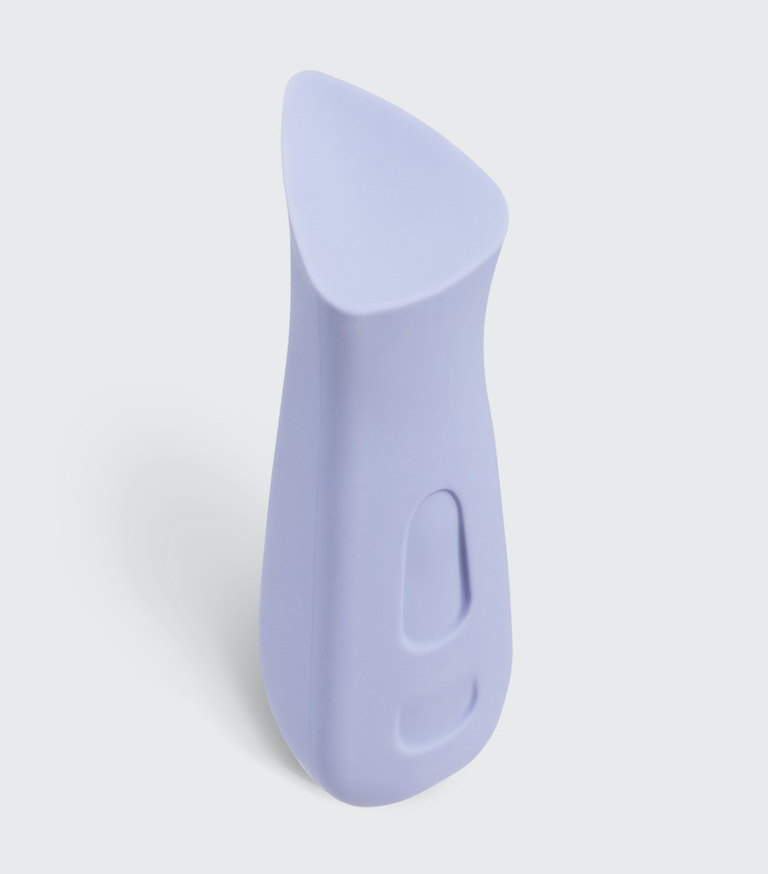
Make time for self-care and self-love. "Take a mindful approach by setting the scene and catering to your senses," Walsh suggests. "Light a candle, take a scented bath, and put some gentle music on in the background. Put fresh sheets on the bed, use massage oil and toys if you enjoy them. Take your time exploring your whole body. Caress your arms and thighs and stomach. Slow down and tune in to each sensation and connect to your breath. Enjoy the journey, not just the destination. The goal is pleasure, not orgasm, although that may be a happy byproduct."
4. Prioritize Connection
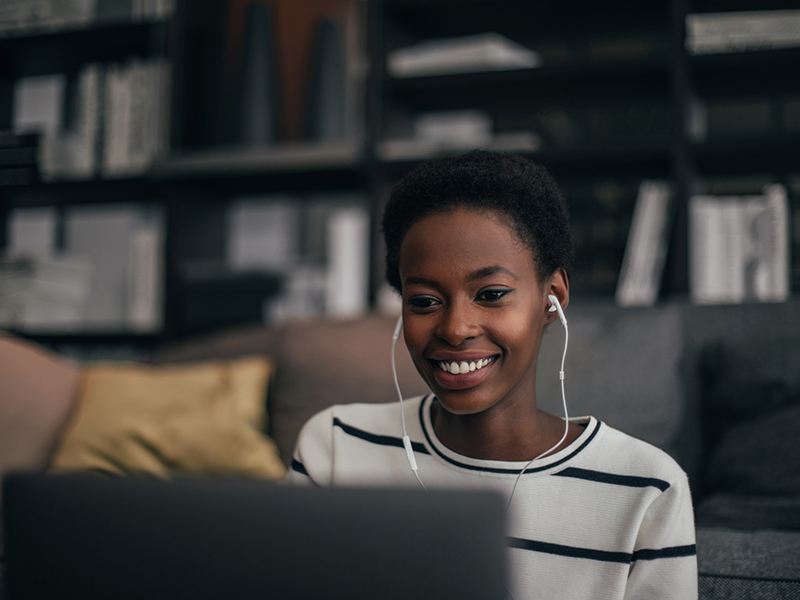
"I think it is important to prioritize connection—even if you don't want to—in whatever form that may take," Blair says. "Don't turn down a Zoom date or social hour with your friends. Try to reframe this time as one in which you can really get to know someone without the 'artificial' constraints that come along with 'normal' dating life. There are not financial factors (who picks up the bill) or erotic barriers (to have sex or not), so you're left with communicating and seeing if there is a connection worth exploring. Ironically, dating during COVID-19 offers an opportunity to go deeper faster. Enough with the small talk; we are all sharing a collective trauma, and that is a point of connection. Though, don't spend your time talking about quarantine. It's dark and boring and not necessarily going to bring you closer."
5. Be Honest on the Apps
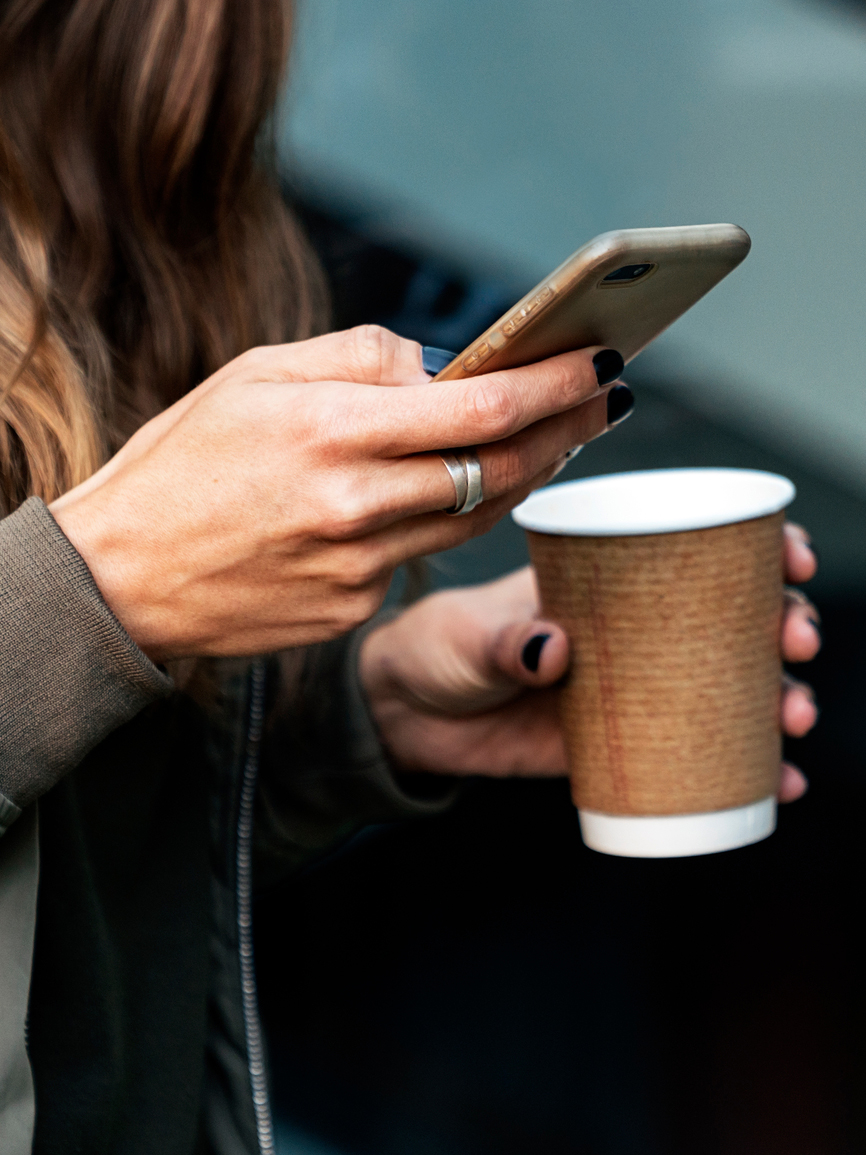
Dating apps can feel like the Wild West because not everyone is looking for the same things. Some people might be looking for a long-term relationship, while others just want to find something casual. Some just want to swipe.
Balestrieri recommends being very clear with yourself about what you're looking for and what you're okay with exploring. Think about what kind of behaviors you expect in a potential partner. "Be rigorously honest with people about what you're looking for," she says. "I mean, it's totally okay if people want to sit on the apps and just sort of sext back and forth and have that be the extent of their interaction. But where I feel like people run into a lot of difficulty, heartbreak, and disappointment is when they're led to believe one thing and then something else happens."
6. Get Creative

If you meet someone you connect with on the apps, you can get creative with your virtual dates. "Maybe you order something from the same restaurant, and you eat together, or you watch the same movie," Balestrieri says. "There are different video-sharing platforms that you can use so that you can kind of simulate being in closer proximity. You can even use things like app-controlled teledildonics to simulate sexual experiences together, even if you aren't in the same room together."
No matter your situation—coupled up or single—the main takeaway when navigating sex and intimacy right now is to be extra patient and kind to yourself and others. We're still in a pandemic after all.
Next up: 22 Awkward Social Situations You Might Experience During COVID-19 & How to Deal
Disclaimer
This article is provided for informational purposes only and is not intended to be used in the place of advice of your physician or other medical professionals. You should always consult with your doctor or healthcare provider first with any health-related questions.
Sarah is lifestyle writer and editor with over 10 years of experience covering health and wellness, interior design, food, beauty, and tech. Born and raised in Los Angeles, she attended New York University and lived in New York for 12 years before returning to L.A. in 2019. In addition to her work at Who What Wear, she held editor roles at Apartment Therapy, Real Simple, House Beautiful, Elle Decor, and The Bump (sister site of The Knot). She has a passion for health and wellness, but she especially loves writing about mental health. Her self-care routine consists of five things: a good workout, “me” time on the regular, an intriguing book/podcast/playlist to unwind after a long day, naps, and decorating her home.